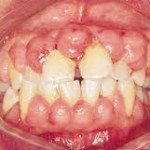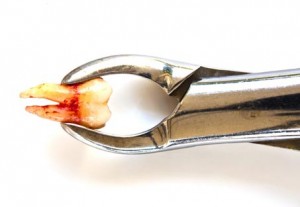 Drug induced gingival hyperplasia is one of the common causes of gingival enlargement. Â
Drug induced gingival hyperplasia is one of the common causes of gingival enlargement. Â
There are three types of drugs highly associated with gingival hyperplasia/enlargement :
1) Antiepileptic drug (Phenytoin)
 2) Immunosuppressive drug (cyclosporine) and 3) calcium-channel blocking drug (nifedipine).
Phenytoin is usually prescribed for the treatment of seizures where as calcium channel blocking drugs are used to treat heart diseases, angina and hypertension.
 The incidence of gingival enlargement is lower in patients who are taking cyclosporine compared to patients who are on phenytoin (Approximately 50 % of patients have gingival overgrowth). However, it can be very severe (covers the entire surface of teeth) when gingival enlargement occurs in patients who are taking cyclosporine. Continue reading

